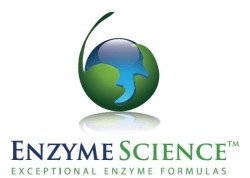The term "aging" has progressed in the last century; we are flooded with research and media outlets analyzing the best way to slow down or reverse aging. While we wish we could stop this natural process, it is inevitable; however, research has shown multiple ways to support longevity and aging gracefully.

The importance of telomeres:
Telomeres are nucleoprotein structures which serve as the biological clock of cells and organisms in the body – they act as the protective mechanism at the end of our chromosomes. Telomerase is an enzyme responsible for synthesizing and determining telomeres length. The length of telomeres shortens with each round of cell division. Research has shown aging has an affect on telomere length as older individuals have shorter telomeres, affecting cell and tissue health.[1] Telomere length is correlated with age and metabolic status; the rate of which telomeres shorten can also indicate the pace of aging.[2]
Stem Cells and Healthy Aging:
Stem cells are undifferentiated cells which have the unique ability to develop into specialized cell types within the body. Stem cells are essential as they enable the healing and replacement of dead cells every day. These regenerative cells are important for aging as tissue homeostasis and regeneration depend on these healthy adult stem cells.[3]
During the natural aging process, the functionality of adult stem cells and the ability to self-renew declines. Stem cells’ response to oxidative stress can further accelerate this decline as oxidative stress results from an imbalance between antioxidants and reactive oxygen species (ROS).[4]
Developing a plan:
While aging is a natural process that affects every cell and organ, the rate at which mental and physical health decline are the most significant factors when it comes to quality of life and longevity. Patients aged 65 years or older make up over 30% of acute care hospitalizations and 50% of hospital visits.
Tried and true staples such as vitamin D and calcium often come to mind; they both have significant clinical evidence showing how they support immune health, healthy bones, and joints.[6],[7] Vitamin D3 plays a vital role in supporting immune and bone health; additionally, higher vitamin D levels may reduce telomere shortening.[8] Antioxidants, dietary phytochemicals (polyphenols and flavonoids), and targeted enzymes can all have a place in a nutritional aging protocol and perhaps help turn back the clock.[9]
Blueberry and green tea extracts are rich in polyphenols, and have been shown to support cognitive function and promoting healthy stem cells. [10],[11] The benefits of enzymes have been known for thousands of years as they play a crucial role in the digestion of nutrients (digestive enzymes), protecting cells from free radicals (antioxidant enzymes), and mediating damaged proteins (proteolytic enzymes).[12]
Many variables can influence the aging process. Physical activity (including strength training exercises), a healthy whole-foods based diet and adding in targeted nutrients can support your patient’s quality of life and the normal aging process.
- Rizvi S, Raza ST, Mahdi F. Telomere length variations in aging and age-related diseases. Curr Aging Sci. 2014;7(3):161-7.
- Galiè S, Canudas S, Muralidharan J, García-Gavilán J, Bulló M, Salas-Salvadó J. Impact of Nutrition on Telomere Health: Systematic Review of Observational Cohort Studies and Randomized Clinical Trials. Adv Nutr. 2020 May 1;11(3):576-601.
- Zakrzewski W, Dobrzyński M, Szymonowicz M, Rybak Z. Stem cells: past, present, and future. Stem Cell Res Ther. 2019;10(1):68. Published 2019 Feb 26.
- Chen F, Liu Y, Wong NK, Xiao J, So KF. Oxidative Stress in Stem Cell Aging. Cell Transplant. 2017 Sep;26(9):1483-1495.
- Admi H, Shadmi E, Baruch H, Zisberg A. From research to reality: minimizing the effects of hospitalization on older adults. Rambam Maimonides Med J. 2015;6(2):e0017. Published 2015 Apr 29.
- Meehan M, Penckofer S. The Role of Vitamin D in the Aging Adult. J Aging Gerontol. 2014;2(2):60-71. doi:10.12974/2309-6128.2014.02.02.1
- Beto JA. The role of calcium in human aging. Clin Nutr Res. 2015 Jan;4(1):1-8.
- Zarei M, Zarezadeh M, Hamedi Kalajahi F, Javanbakht MH. The Relationship Between Vitamin D and Telomere/Telomerase: A Comprehensive Review. J Frailty Aging. 2021;10(1):2-9.
- Lee JY, Jun NR, Yoon D, Shin C, Baik I. Association between dietary patterns in the remote past and telomere length. Eur J Clin Nutr. 2015 Sep;69(9):1048-52.
- Bickford PC, Tan J, Shytle RD, Sanberg CD, El-Badri N, Sanberg PR. Nutraceuticals synergistically promote proliferation of human stem cells. Stem Cells Dev. 2006 Feb;15(1):118-23.
- Bielinski D, Fisher D, Shukitt-Hale B, Zheng T. Beneficial Effects of Blueberry Extracts on Adult Human Neural Progenitor Cells. Curr Dev Nutr. 2020;4(Suppl 2):1191. Published 2020 May 29.
- Robinson PK. Enzymes: principles and biotechnological applications [published correction appears in Essays Biochem. 2015;59:75]. Essays Biochem. 2015;59:1-41.
Share:
Related Posts

Benefits of Creatine in Perimenopause and Menopause
Written by Maura MacDonald, MS, RD, CSSD | 2025 As we age, the notion is that we will inevitably become weaker. Not as mobile as

Goodbye Pie Chart, Hello Phase 1 Sliders
Written by Allison Smith, ND | 2025 As we usher in a new era of DUTCH testing which leaves behind the concept of the three-way

Introducing the DUTCH Dozen
Written by Kelly Ruef, ND | 2025 Hormone testing can be complex, which is why Precision Analytical developed the DUTCH Dozen, an interpretive framework that

DUTCH Report Enhancements
Written by Hilary Miller, ND | 2025 Precision Analytical have released the newest version of the DUTCH Test. This is the report’s most significant update

Gallbladder Health 101: What It Does and How to Keep It Working Well
Written by Ashley Palmer & Pooja Mahtani | 2025 The gallbladder may not get much attention compared to the gut, but it plays a central

